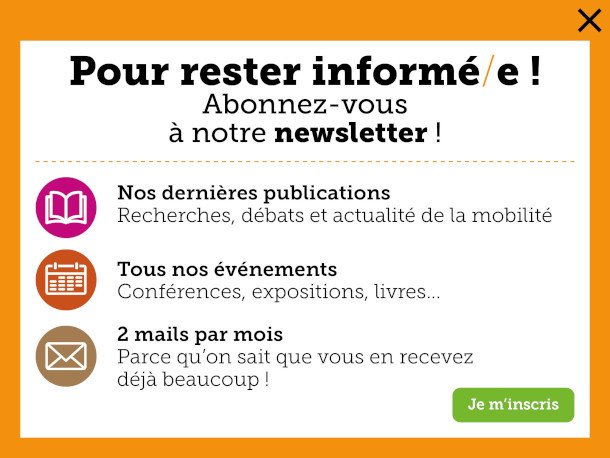Contact
- Pour toute question relative à une recherche du Forum merci de contacter le/la chargé(e) de projet dont le nom est indiqué sur la page de celle-ci (voir la rubrique « Recherche »)
- Pour toute question relative à un événement, à l’un de nos ouvrages ou à la valorisation d’un projet, merci de contacter Tom Dubois
- Pour les relations presse, merci de contacter Véronique Wasa ou de vous reporter à l’Espace presse
- Pour ajouter un événement sur l’agenda, merci de contacter Thomas Evariste
- Pour proposer un nouvel ouvrage dans la rubrique "veille éditoriale", contacter Thomas Evariste.
- Pour toute autre question, merci de contacter Sylvie Landriève

 S'abonner à la newsletter
S'abonner à la newsletter







































